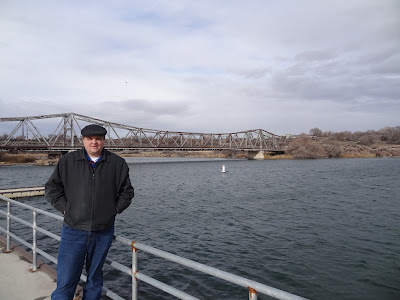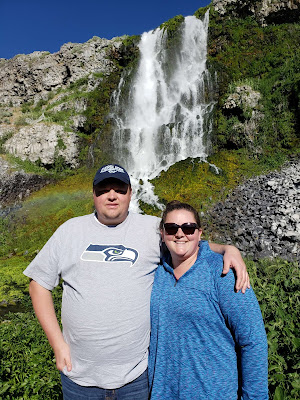Visited: Feb 2019
Nearby town: Hagerman, ID; Twin Falls, ID
In 1928, a cattle rancher named Elmer Cook discovered some fossils in this region of south-central Idaho, near the small town of Hagerman. The bones looked somewhat like a horse. Cook took the fossils to the US Geological Survey, and they eventually ended up on the desk of James W. Gidley of the Smithsonian Institution.
These bones were determined to be a newly-discovered extinct species of horse. The species was named Equus simplicidens, commonly known as the "Hagerman Horse." This find is widely regarded as the oldest accepted remains of the genus Equus (horse/zebra) in the entire world. Dr. Gidley would lead an excavation in the Hagerman area a year later, and found hundreds of fossilized remains of this horse, all concentrated in one location known as the Hagerman Horse Quarry.
The Hagerman horse first appeared around 3.5 million years ago (the Pilocene Epoch). The horse was about the same size as today's Arabian Horse (ancient ancestors of the modern horse (like Eohippus) were much smaller, more akin to a dog). It had a straight shoulder and a thick neck, like a zebra, and a short, narrow skull (like a donkey). The Hagerman horse went extinct around 10,000 years ago, as the Ice Age moved in to the grasslands and floodplains and forever changed the North American continent.
Scientists are unsure why such a large collection of Hagerman Horse are found in this region in Idaho. Some speculate that this was the location of an ancient watering hole, that served as a long-time gathering place for these horses. Others predict that a large group of Hagerman Horse attempted to ford a river and drowned, swept away by the current, and ended up being buried in the soft sand.
The Hagerman Horse is the official state fossil of Idaho.
Head to the visitor center in Hagerman to see a complete skeleton of the horse.
Head up to the quarry section (only a couple miles south of Hagerman) and enjoy the views overlooking the Snake River and there are some short trails.
There's also a cool, old bridge near the area. The Owsley Bridge was built in 1920. It is a cantilevered Warren truss bridge, cars are no longer allowed to drive on it. It is a footbridge only.
We need to re-visit once the new Visitor's Center opens up...and visit at a time when it's more green and not quite so cold. 😄
For more info on the monument: https://www.nps.gov/hafo/index.htm
BONUS: take some time and drive the Thousand Springs Scenic Byway between Hagerman and Twin Falls (via Buhl), stop at Thousand Springs State Park. This is a spectacular drive that goes along the Snake River, and you'll see lots of waterfalls (in spring and early summer). These springs come up naturally right out of the ground and cascade down the canyon walls. It's really neat. There's lots of resorts, camping, hiking, and recreational river-use all throughout this area. We spent some time on Ritter Island in June 2019.






















No comments:
Post a Comment